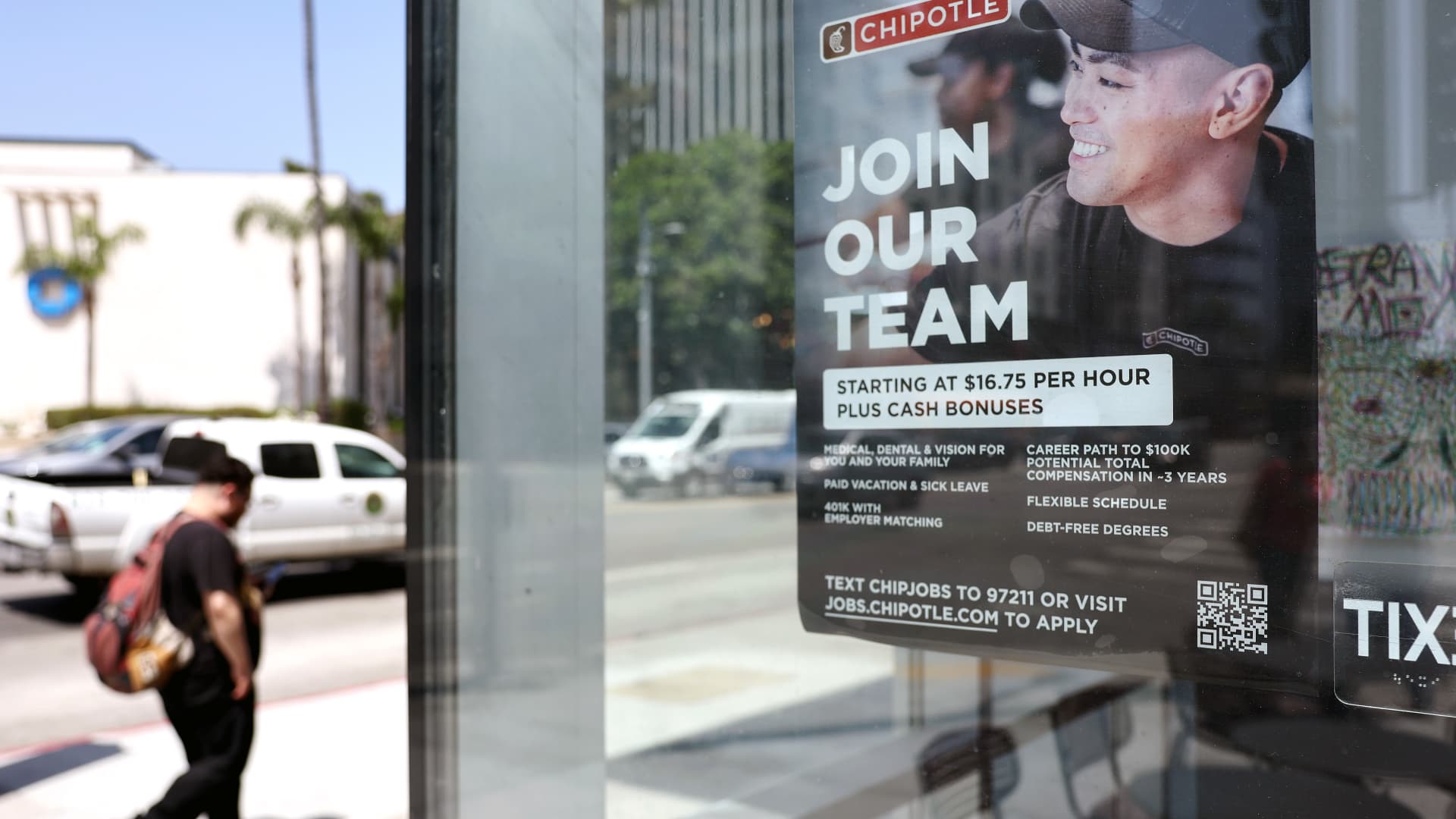Job vacancies and layoffs edged lower in June, according to a Labor Department report Tuesday that points to a stable labor market.
Employment openings totaled 9.58 million for the month, edging lower from the downwardly revised 9.62 million in May, the department said in its monthly Job Openings and Labor Turnover Survey. That was the lowest level of openings since April 2021 and below the 9.7 million estimate from FactSet.
Along with that, the JOLTS report said layoffs nudged down to 1.53 million, after totaling 1.55 million in May.
Economists were watching the two data points closely for clues about the direction of a labor market that has proven surprisingly resilient despite a series of Federal Reserve interest rate hikes aimed at slowing the economy and inflation.
Declines in both job openings and layoffs indicate that demand for labor is slowing, as the Fed hopes, while companies are still retaining workers, indicating that the unemployment rate is unlikely to spike anytime soon.
The JOLTS report is a key indicator for the Fed, as it ponders what to do next after having raised interest rates a total of 5.25 percentage points since March 2022.
“A variety of economic data show the U.S. economy was cruising in the second quarter. The June JOLTS data is no exception,” said Nick Bunker, head of economic research for the Indeed Hiring Lab. “The pace of the current slowdown may be too gradual for many policymakers at the Federal Reserve, as job openings are only gradually declining. But workers have much to celebrate and still possess substantial leverage.”
The June total for job openings represents a decline of nearly 1.4 million, or 12.6%, from the same period a year ago. There are now about 1.6 job openings per every available worker, according to Labor Department data.
Openings grew in health care and social assistance as well as state and local government excluding education, and declined in transportation, warehousing and utilities state and local government education.
Along with the drop in openings and layoffs came a decline in hiring to 5.9 million, a drop of 0.2 percentage point as a share of total employment. Quits also fell noticeably, falling by nearly 300,000 or 0.2 percentage point.
Manufacturing still in contraction
A separate report Tuesday showed that the manufacturing sector, which reported declines in both job openings and hires for June, was still in contraction during July. The ISM Manufacturing Index registered a reading of 46.4, representing the percentage level of companies reporting expansion against contraction. A level below 50 indicates contraction.
The index moved up for the month but was slightly below the 46.8 Dow Jones estimate. A 3.7-point decline in employment was the main factor holding back the index, as new orders, production and inventories all saw gains from June.
“The widely anticipated boost from China’s re-opening has amounted very little, and more generally, we see few signs of any near-term improvement in the outlook,” wrote Ian Shepherdson, chief economist at Pantheon Macroeconomics.
While the drop in manufacturing employment is unlikely to have a major impact on the headline payrolls number, the ISM report reflects an ongoing shift from goods to services consumption in the Covid-era recovery.
For a fuller economic picture, economists will turn their attention to a buffet of reports through the rest of the week — the ADP private sector hiring release due Wednesday, weekly jobless claims on Thursday, and the pivotal nonfarm payrolls report Friday. The July jobs report is expected to show growth of 200,000, down from 209,000 in June, with the unemployment rate holding steady at 3.6%.
